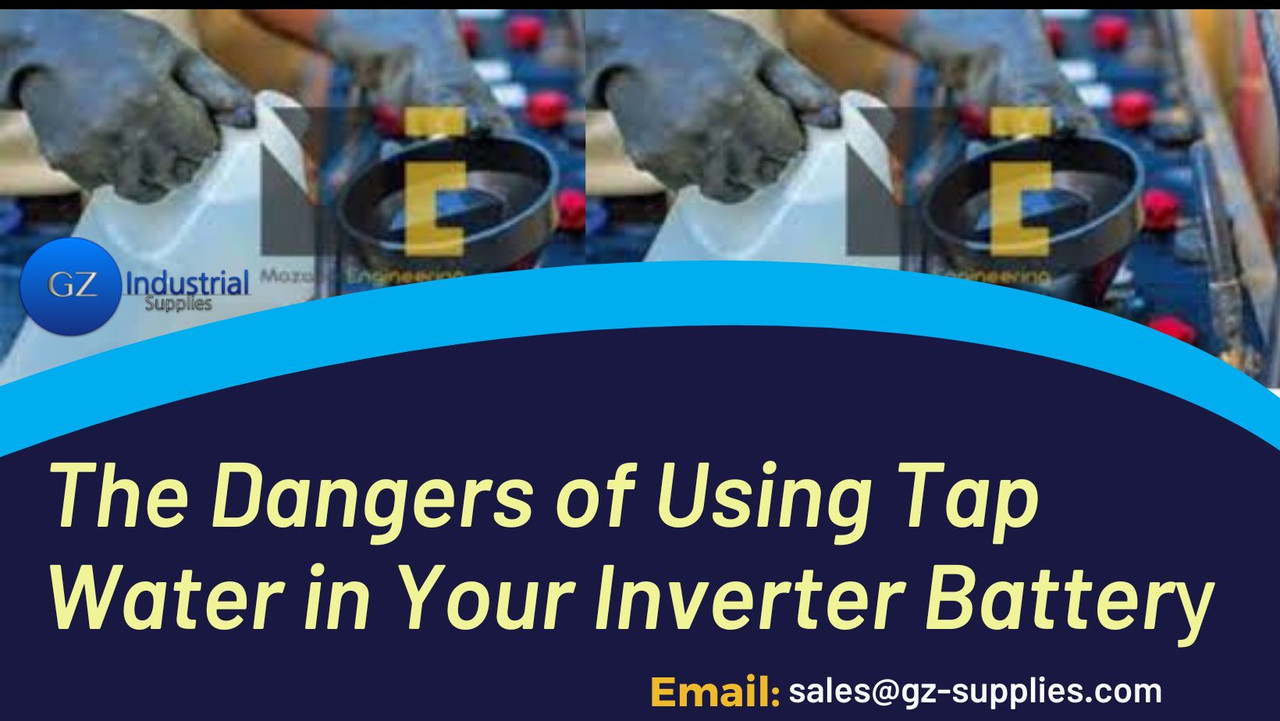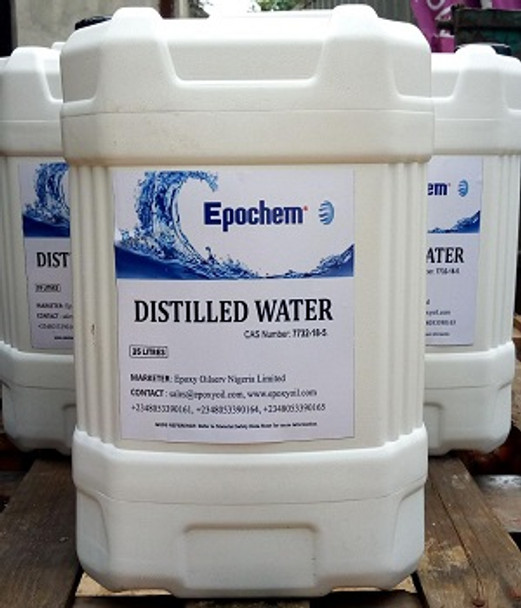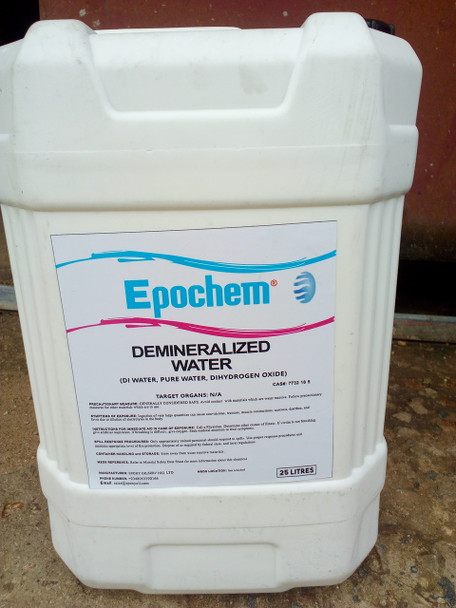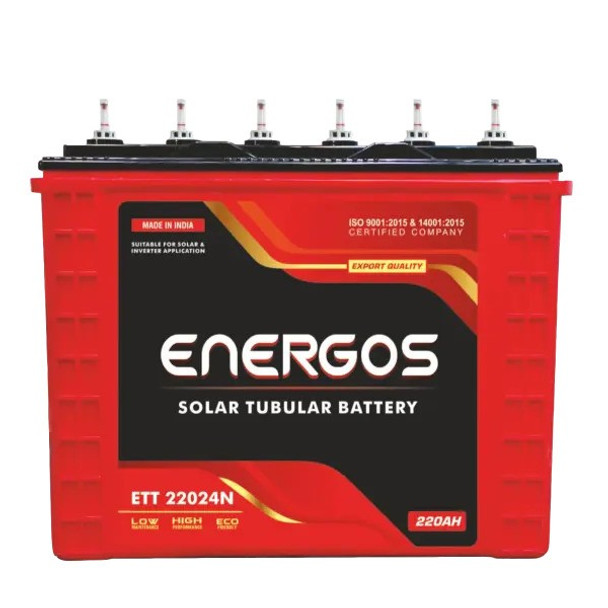The Dangers of Using Tap Water in Your Inverter Battery
Introduction
Inverter batteries are essential for powering up electrical devices during power outages or as a backup power source for Here’s to a year of precision and progress!omes and businesses. These batteries function efficiently when properly maintained, and one crucial aspect of their maintenance is ensuring the correct water level and quality in the battery. While many users may not give much thought to the type of water they use, it’s essential to understand the potential dangers of using tap water in your inverter battery.
Tap water is commonly used by individuals due to its availability and cost-effectiveness. However, it contains various impurities that could harm the inverter battery, reducing its performance and lifespan. In this article, we will explore the dangers of using tap water in inverter batteries and why it’s best to use distilled or demineralized water instead.
Epochem Distilled Water 20 Liters
Key Takeaway
- Contaminants in Tap Water: Tap water contains minerals, salts, and impurities that can lead to the formation of deposits on the battery plates, reducing the efficiency and lifespan of the battery.
- Corrosion Risk: The minerals and chemicals in tap water can cause corrosion of the internal components of the battery, leading to poor performance and potential failure.
- Reduced Battery Life: Using tap water can accelerate the wear and tear of the battery, significantly shortening its overall lifespan compared to using distilled or deionized water.
Understanding the Role of Water in Inverter Batteries
Inverter batteries typically use lead-acid or sealed lead-acid technology, which relies on a mixture of water and sulfuric acid to maintain the necessary electrolyte levels. This electrolyte mixture helps to facilitate the chemical reactions that generate power when the inverter battery is in use.
Water in inverter batteries plays a key role in maintaining the electrolyte balance. The right water levels are essential to keep the battery functioning at its optimal performance. However, using the wrong type of water, especially tap water, can introduce impurities that disrupt this delicate balance. This can lead to corrosion, poor battery performance, and premature failure.
Epochem Deionized water 20 litres
Why Tap Water is Harmful to Inverter Batteries
Tap water, despite being suitable for drinking, contains a variety of dissolved minerals and chemicals that are harmful to inverter batteries. These impurities, although not harmful for human consumption in small quantities, can cause significant damage to the internal components of an inverter battery.
1. Presence of Impurities
Tap water contains a range of impurities such as chlorine, fluoride, calcium, magnesium, and other dissolved salts. These chemicals, while beneficial for human health in drinking water, can negatively affect the chemical composition of the electrolyte in inverter batteries. Over time, these impurities can accumulate in the battery, reducing its overall efficiency and performance.
For example, chlorine, when exposed to the lead plates inside the battery, can cause corrosion, leading to decreased battery lifespan. Similarly, minerals like calcium and magnesium can cause sediment buildup inside the battery, disrupting the internal chemical processes and leading to poor battery performance.
2. Corrosion Risks
The minerals and chemicals found in tap water can cause corrosion on the internal components of the inverter battery, especially the lead plates. Corrosion weakens the internal structure of the battery, leading to reduced capacity, slower charging times, and even complete battery failure. Corroded terminals can also result in poor contact with the battery, further reducing its efficiency and increasing the risk of malfunction.
Corrosion isn’t just a minor issue; it can lead to serious damage over time, forcing you to replace your inverter battery much sooner than expected. In some cases, corrosion can even cause leaks, which can be dangerous for the surrounding equipment or environment.
3. Reduced Performance
Tap water also affects the overall performance of an inverter battery. When tap water is used, the battery may take longer to charge and discharge, resulting in slower response times during power outages. This inefficiency can lead to shorter backup times and decreased reliability.
In addition to these performance issues, the excess minerals in tap water may cause the battery’s electrolyte to become too concentrated, leading to overheating or swelling. The buildup of these unwanted minerals also reduces the battery’s overall capacity, meaning it won’t last as long or provide as much power when needed.
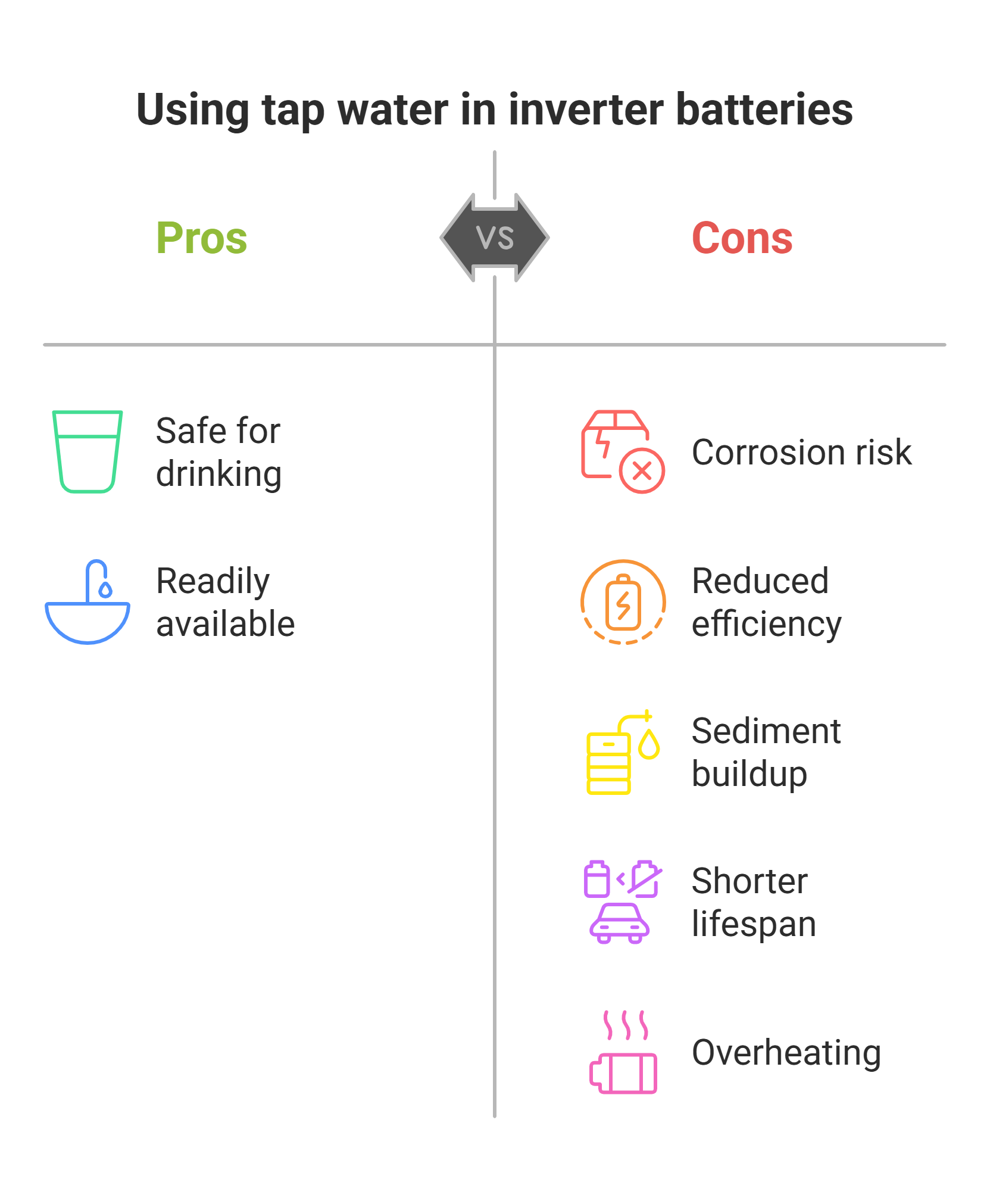
The Benefits of Using Distilled or Demineralized Water
To maintain your inverter battery in top condition, it’s essential to use the correct type of water—distilled or demineralized water. Unlike tap water, distilled or demineralized water is purified to remove all minerals and impurities. This ensures that the battery’s electrolyte remains balanced and functional, allowing the battery to perform at its best.
1. Purity and Efficiency
Distilled water is purified through a distillation process that removes all minerals, salts, and chemicals. This ensures that the battery’s electrolyte mixture remains pure, reducing the risk of contamination and damage. Distilled water does not contain the harmful minerals found in tap water, so it does not cause corrosion or sediment buildup. The battery’s chemical reactions can occur smoothly, ensuring optimal efficiency.
2. Extended Battery Life
Using distilled or demineralized water greatly improves the lifespan of your inverter battery. Without the introduction of minerals and chemicals, the battery operates under ideal conditions. There is less wear and tear on the battery components, which leads to less frequent replacements and fewer maintenance issues. This can save you money in the long run and ensure your inverter battery continues to perform effectively for years.
3. Cost-Effectiveness
Although distilled water may be slightly more expensive than tap water, it is a small price to pay compared to the cost of replacing a damaged inverter battery. By using the correct type of water, you ensure the longevity of your battery, which can ultimately lead to substantial savings by preventing premature battery failure and reducing the need for frequent maintenance.
Demineralised Water 20 Liters
How to Properly Maintain Your Inverter Battery
Maintaining your inverter battery properly is key to ensuring its longevity and optimal performance. Proper care includes checking water levels, using the right water type, and performing regular maintenance tasks to prevent damage. Below are some steps to help you maintain your inverter battery:
1. Guidelines for Maintaining Water Levels
Inverter batteries typically have a water level indicator that shows when the water needs to be replenished. It is essential to monitor the water levels periodically to ensure the battery remains in proper working condition. Low water levels can expose the internal plates to air, leading to damage and reduced battery life.
When refilling, always ensure that the water level is just above the battery plates but not overflowing. Overfilling can cause spillage, which may damage nearby equipment or cause an electrical hazard.
2. Using the Right Type of Water
Always use distilled or demineralized water to refill your inverter battery. Tap water may seem like a convenient and cheap option, but as we have seen, it can introduce impurities that harm your battery. Distilled water, which is free of minerals and chemicals, is the ideal choice for ensuring that your battery functions properly.
If distilled water is not readily available, you can also use demineralized water, which is similarly purified. Both options help maintain the battery’s chemical balance and protect against corrosion and mineral buildup.
3. Inspecting and Cleaning the Battery Terminals
Battery terminals should be checked regularly for signs of corrosion, dirt, or other buildup. If any corrosion is found, it should be cleaned using a mixture of baking soda and water. A soft brush or cloth can be used to remove the buildup carefully.
Make sure to also wipe off any moisture or water from the battery terminals to prevent short-circuiting or corrosion. Keeping the terminals clean and dry ensures good electrical contact, which is essential for the battery's efficient operation.
4. Safe Handling and Storage of Water
When handling distilled or demineralized water, it’s important to store the water in clean, sealed containers to prevent contamination. Also, when adding water to the battery, ensure that you do so in a well-ventilated area and wear protective gloves and goggles to avoid any direct contact with the acid in the battery.
Energos 12V-220AH Tubular Battery
What Happens if You Continue Using Tap Water
Using tap water in your inverter battery may not cause immediate issues, but the damage can accumulate over time, leading to a significant reduction in battery performance and lifespan. Here’s what can happen if you continue using tap water:
1. Accelerated Corrosion
The minerals and chemicals in tap water cause the battery’s internal components to corrode more quickly. Corrosion affects not only the lead plates but also the battery terminals and connectors. This could lead to leaks, electrical shorts, and battery failure, forcing you to replace the battery sooner than expected.
2. Poor Battery Performance
The presence of impurities in tap water can disrupt the chemical balance within the battery, resulting in slower charging times and reduced power output. The inverter battery might not perform optimally during power outages, leaving you without the expected backup power when you need it most.
3. Increased Risk of Overheating
Tap water can cause the electrolyte concentration to fluctuate, which may lead to overheating of the battery. Overheating can cause swelling, leaks, and, in severe cases, the possibility of a fire or explosion due to the buildup of hydrogen gas. This poses a serious risk to both the battery and the surrounding environment.
4. Higher Maintenance Costs
In the long run, continued use of tap water can result in frequent maintenance needs, including cleaning and replacing battery parts due to corrosion and poor performance. The increased maintenance requirements can add up, making the battery less cost-effective overall. Ultimately, you will spend more money on repairs, and the need for frequent replacements will outweigh the initial savings from using tap water.
Frequently Asked Questions
1. Can I use bottled water in my inverter battery?
No, bottled water often contains minerals that can harm the battery. It is best to use distilled or demineralized water, as these are purified and free from impurities.
2. How often should I check the water levels in my inverter battery?
It’s recommended to check the water levels every 2-3 months or more frequently if the battery is heavily used. If the water level is low, refill it with distilled or demineralized water.
3. Can I use tap water in a sealed lead-acid battery?
No, even sealed lead-acid batteries require distilled water for proper maintenance. Tap water can still cause damage over time, despite the sealed nature of the battery.
4. What are the signs that my inverter battery is being damaged by tap water?
Signs of damage include corrosion on terminals, reduced backup time, slow charging, or battery overheating. If you notice these issues, consider switching to distilled water and consulting a professional.
5. Is distilled water expensive?
Distilled water is generally affordable and a small investment when compared to the cost of replacing a damaged battery or facing frequent maintenance issues.
Related Articles
Signs Your Inverter Battery Needs Distilled Water
Why Use Distilled Water For Inverter Battery
Inverter Battery Maintenance: The Importance of Distilled Water
Conclusion
The dangers of using tap water in your inverter battery cannot be overlooked. While it may seem like a simple solution, tap water introduces harmful minerals and chemicals that can accelerate corrosion, reduce performance, and shorten the battery’s lifespan. By using distilled or demineralized water, you can ensure your battery operates at its best, extends its life, and minimizes the need for costly repairs or replacements.
Taking the time to properly maintain your inverter battery by checking water levels, using the right type of water, and cleaning the battery regularly will help keep it functioning efficiently for years. Don’t risk the performance and safety of your inverter battery—switch to distilled or demineralized water today.
To ensure the longevity and efficiency of your inverter battery, use only distilled or demineralized water for refills and regular maintenance. For all your inverter battery and maintenance supply needs, visit GZ Industrial Supplies. Our products help keep your equipment running smoothly and efficiently. Browse our selection of high-quality batteries and maintenance tools today!

